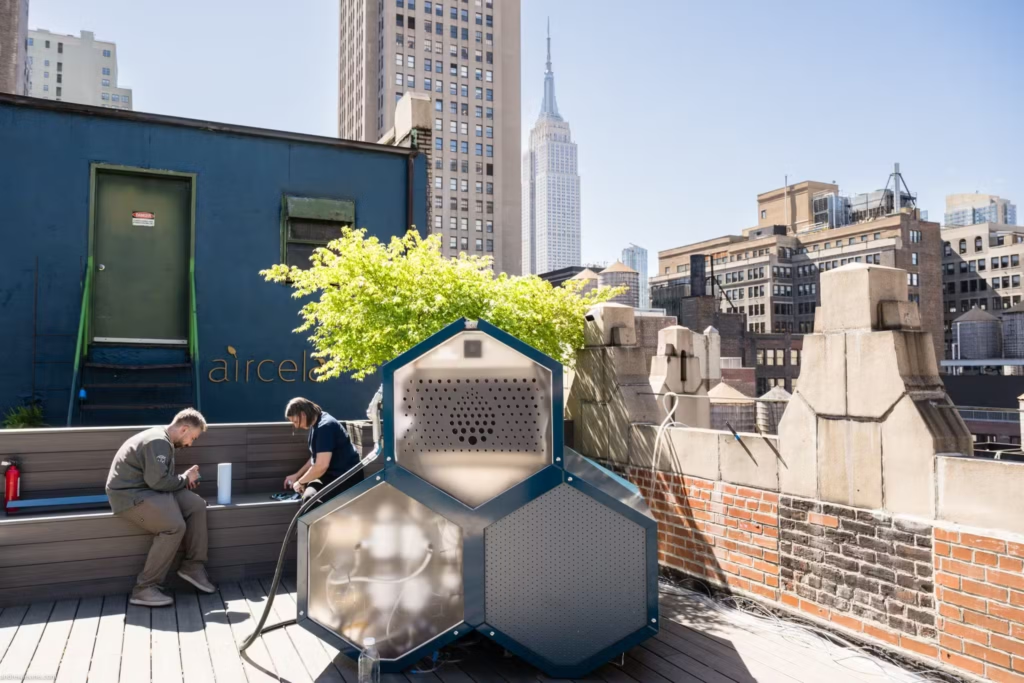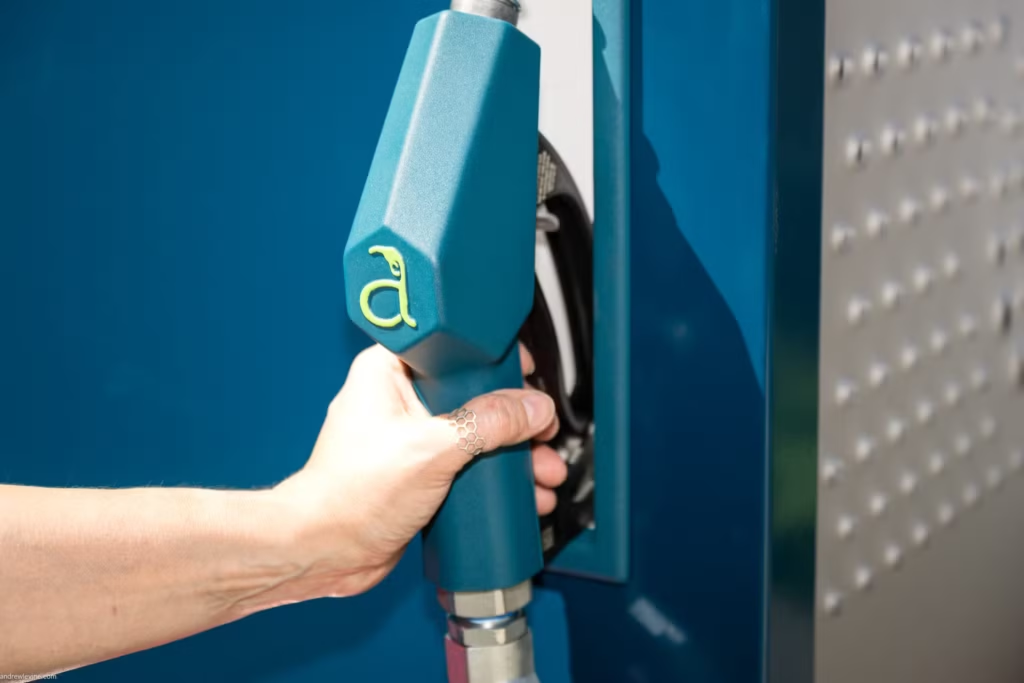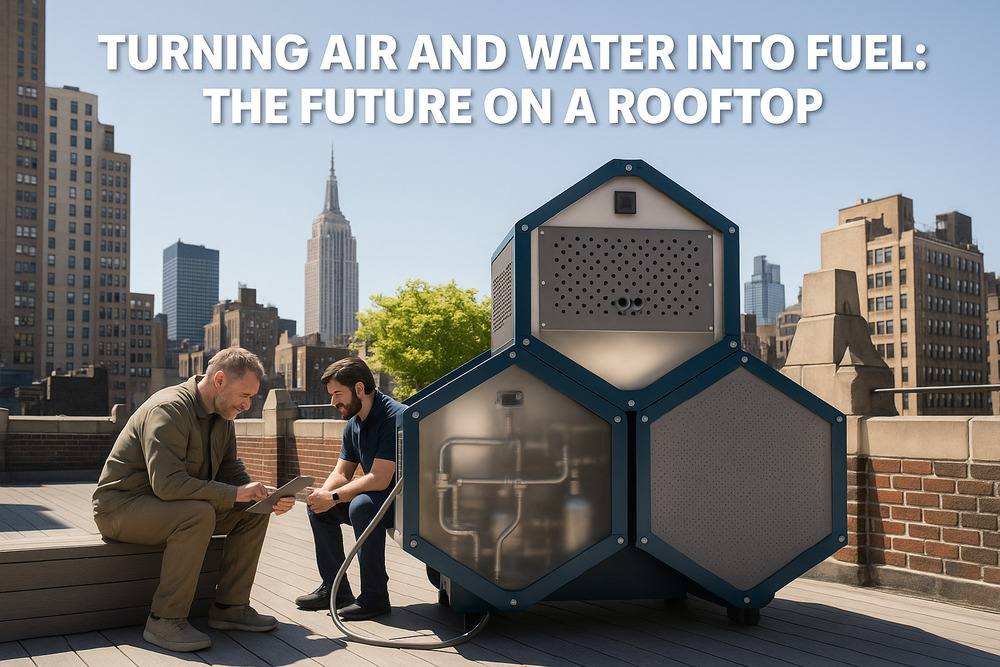A California startup called Aircela has announced what they claim is the first working machine in the US that makes petrol directly from air. The prototype, about the size of a large fridge, was shown to the public on a rooftop in New York City in late May.
Air to Fuel in Three Steps
The system captures carbon dioxide from the air and mixes it with hydrogen produced through water electrolysis. This mixture is then turned into methanol, which is chemically converted into gasoline using a process known as methanol-to-gasoline (MTG).
The machine features three hexagonal modules, each focusing on one key task: capturing carbon, splitting water into hydrogen, and creating fuel. Its design mimics natural honeycomb structures, offering strength and options to expand.


Compact, Scalable, and Drop-In Ready
Unlike other efforts that aim for large, centralized plants, Aircela’s approach focuses on small, modular units. These can be placed in remote areas or places with limited fuel infrastructure. Each unit has a standard petrol nozzle, making refueling familiar and simple.
The petrol produced can be used in any vehicle that runs on regular gasoline. When powered by renewable energy, the process releases no more CO₂ than it captures, making it carbon-neutral.
Total Petrol Output
One Aircela unit can generate about one gallon (4.55 litres) of fuel per day if it runs all the time. While the output is small, the company plans to connect multiple units to increase production without needing large facilities.
Liz White, Aircela’s Head of Industrial Design, said, “Designing small, modular machines helps cut costs and speeds up the spread of clean fuel where it’s needed most.”
Designed for Accessibility and Sustainability
The machine’s colorful panels represent air, water, and sunlight. It uses reusable carbon sorbent and a custom fuel pump, all designed to be easy for users. The design was all developed inside the company.
Major industries have shown interest. Maersk Growth, part of the Danish shipping firm, has invested in the project. On-site, fossil-free fuel could benefit many sectors, especially transportation.
For more daily updates, please visit our News Section.

